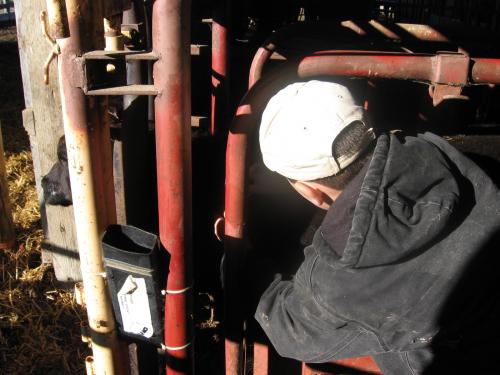Booster vaccinations for beef calves
With cattle vaccinations; timing is important

Protocols generally consist of two rounds of vaccinations. Once the first-round of vaccines has been given, be sure to schedule the “booster” round. The time between vaccinations is critical. Most product labels now list 3-6 week intervals between vaccinations. This interval is important to optimize the immune system response to the vaccines. Be sure to consider management options when scheduling vaccination dates. Considerations might include cattle grouping, location, weather conditions, handling facility needs and most importantly, stress accumulation. Be sure to not stack too much on calves in one treatment through the chute. It’s preferred to only vaccinate when processing and do additional management like weaning, relocating, dehorning or castration earlier if possible. Reducing stress will help insure the desired response to the vaccinations and healthier calves downs the road.
Read product labels carefully and follow all vaccine recommendations including when to give, how to give, how much to give and precautions when administering. Vaccinate in the neck of the animal rather than in the hind quarter, whether it is administered intramuscularly (IM) or subcutaneously (Sub-Q). This will minimize meat lost due to injection site lesions. Failure to follow the label directions for vaccination timing or administration can reduce the vaccine efficacy and may not provide optimal protection. Be sure to consult your local veterinarian or Michigan State University Extension beef educator for vaccination recommendations. Finally, pass along your vaccination and health information to the next owner. This adds values to your calves and may prevent duplication of vaccine use. Repeat customers are important. The most common repeat customers are those making a profit.



 Print
Print Email
Email
